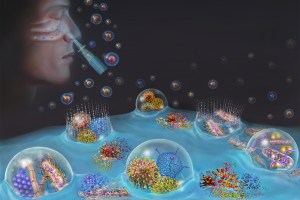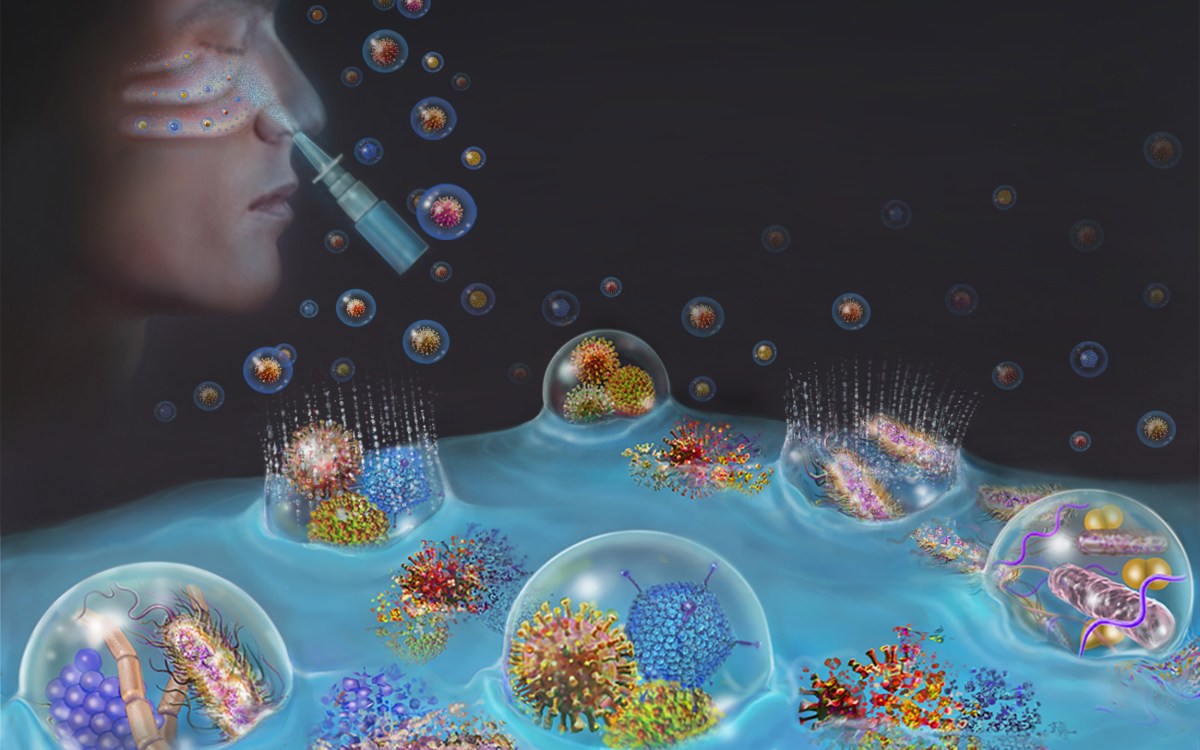Researchers develop ALS mouse stem cell line
Provides new insight into causes of ALS
A team of Harvard researchers has used embryonic stem cells, derived from mice carrying a human gene known to cause a form of amyotrophic lateral sclerosis (ALS), to create an in vitro model of the always-fatal neurodegenerative disease. Harvard Stem Cell Institute principal investigator Kevin Eggan and Tom Maniatis, the Thomas H. Lee Professor of Molecular and Cellular Biology in Harvard’s Faculty of Arts and Sciences, are the senior authors of the study published on-line April 15 by Nature Neuroscience.
Eggan, Maniatis and colleagues also report that substances produced by a form of glial cells, neuronal support cells, causes the damage in motor neurons associated with ALS. In the same issue of Nature Neuroscience, a group of Columbia University Medical Center researchers, led by Serge Przedborski, collaborating with Eggan and Maniatis, also report that these glial cells, called astrocytes, produce a toxic factor that leads to motor neuron death.
The work by the Eggan and Maniatis group has major implications for the field of embryonic stem cell research because, Eggan explained, if you have embryonic stem cells that carry the genes for a disease – in this case ALS – “you can make limitless quantities of the cells affected by the disease, study the disease process, and have an in vitro model for studying possible treatments.”
Most public discussion and debate about stem cell research has focused on the possible uses for stem cells in treating disease, but during a telephone press conference Saturday, Maniatis echoed Eggan’s comment, noting that the current Harvard study “establish[es] using stem cells to study the mechanism of disease, and use them to find treatments.” Eggan and Maniatis said that the same techniques they used to establish this ALS model could be used to establish models for studying, and screening for drug treatments, in a host of human diseases.
Eggan said that using embryonic stem cell models for studying disease can potentially have the same impact on increasing the understanding of human disease that installing so-called “black boxes” in airplanes has had on understanding the causes of crashes. Before the installation of black boxes, he said, “investigators would come to the site of the crash, take the broken pieces of the plane to some high school gym,” and try to reconstruct the plane in order to attempt to figure out what had gone wrong. But installing the black boxes, which provide data from the entire flight, “made it possible to understand the earliest events” that might have contributed to a crash.
“If all we have to study a disease is material from a patient in whom the symptoms are already present, we may have no way to determine what initially triggered those symptoms,” Eggan said. “But these embryonic stem cells are like the black boxes in aviation – they allow us to study the very earliest disease mechanisms in the lab.”
In terms of ALS, the Harvard and Columbia studies are important in two regards:
At least in this form of ALS – which affects about 5 percent of patients with the disease – they demonstrate that a toxic factor in the patient’s neuronal support cells is causing motor neurons to die, leading to the development of the disease’s fatal symptoms. That points to the possibility of treating ALS by blocking the production or action of the toxic factor, and replacing damaged motor neurons with replacement cells derived from disease-specific embryonic stem cells.
ALS, also known as Lou Gehrig’s disease, is a condition in which the motor neurons controlling voluntary muscles die. This leads to paralysis of the limbs, and generally within three-to-five years of diagnosis to death by suffocation due to the weakening and loss of control of the muscles that control breathing. About 5,000 Americans are diagnosed with ALS each year, and about 5 percent of the cases have an identifiable genetic component.
The Harvard researchers received support from the ALS Association, the Harvard Stem Cell Institute, and Project A.L.S. Kevin Eggan is a Stowers Medical Institute Investigator.




